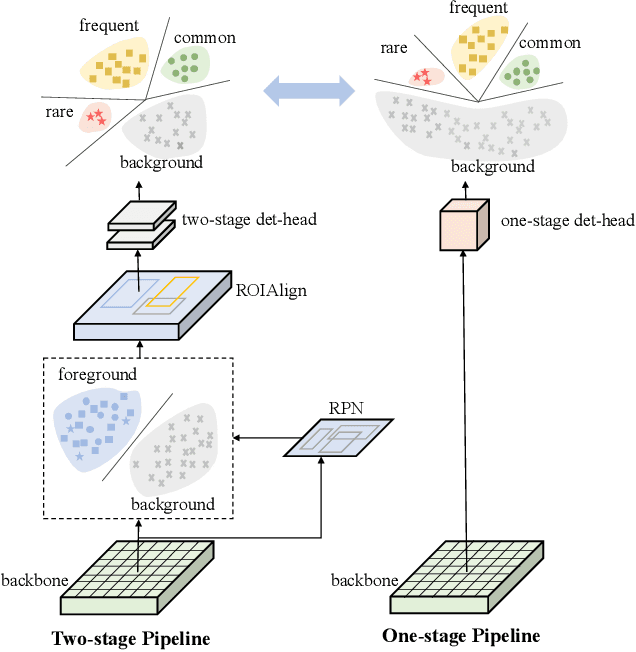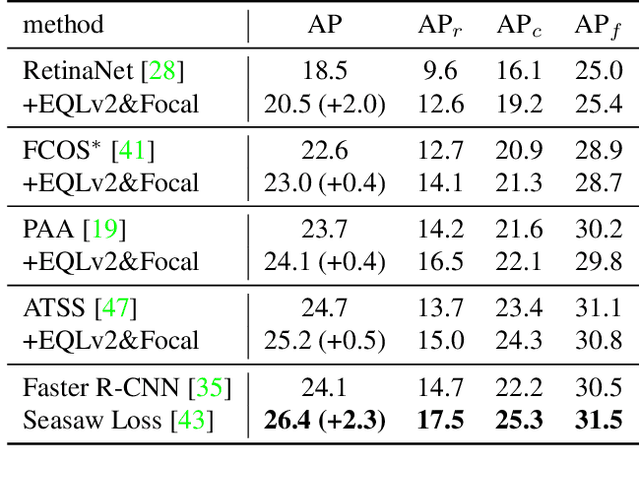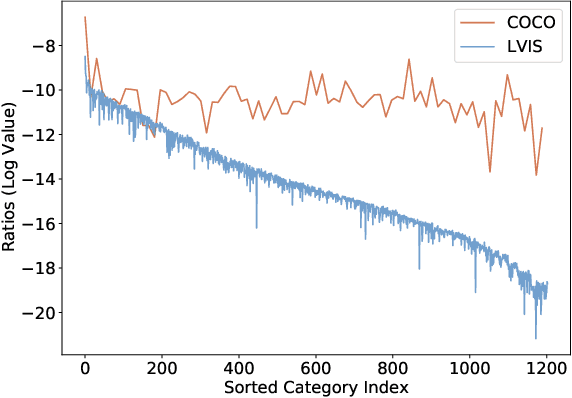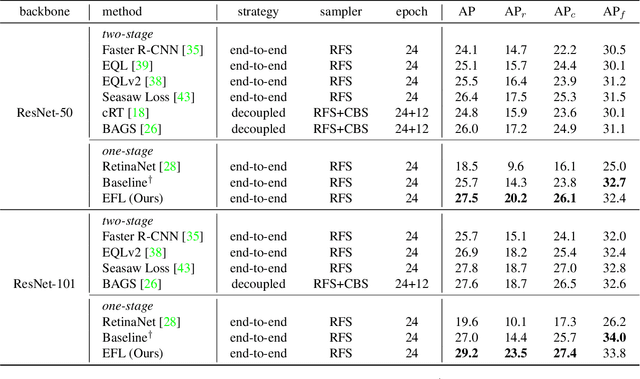Equalized Focal Loss for Dense Long-Tailed Object Detection
Paper and Code
Jan 07, 2022



Despite the recent success of long-tailed object detection, almost all long-tailed object detectors are developed based on the two-stage paradigm. In practice, one-stage detectors are more prevalent in the industry because they have a simple and fast pipeline that is easy to deploy. However, in the long-tailed scenario, this line of work has not been explored so far. In this paper, we investigate whether one-stage detectors can perform well in this case. We discover the primary obstacle that prevents one-stage detectors from achieving excellent performance is: categories suffer from different degrees of positive-negative imbalance problems under the long-tailed data distribution. The conventional focal loss balances the training process with the same modulating factor for all categories, thus failing to handle the long-tailed problem. To address this issue, we propose the Equalized Focal Loss (EFL) that rebalances the loss contribution of positive and negative samples of different categories independently according to their imbalance degrees. Specifically, EFL adopts a category-relevant modulating factor which can be adjusted dynamically by the training status of different categories. Extensive experiments conducted on the challenging LVIS v1 benchmark demonstrate the effectiveness of our proposed method. With an end-to-end training pipeline, EFL achieves 29.2% in terms of overall AP and obtains significant performance improvements on rare categories, surpassing all existing state-of-the-art methods. The code is available at https://github.com/ModelTC/EOD.
 Add to Chrome
Add to Chrome Add to Firefox
Add to Firefox Add to Edge
Add to Edge